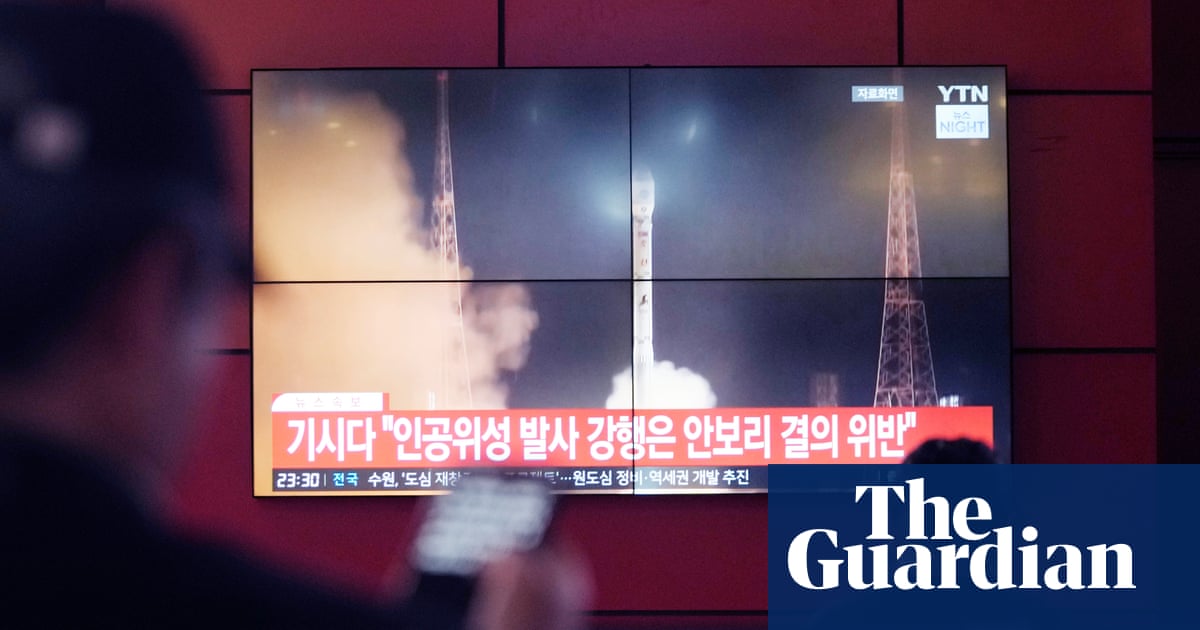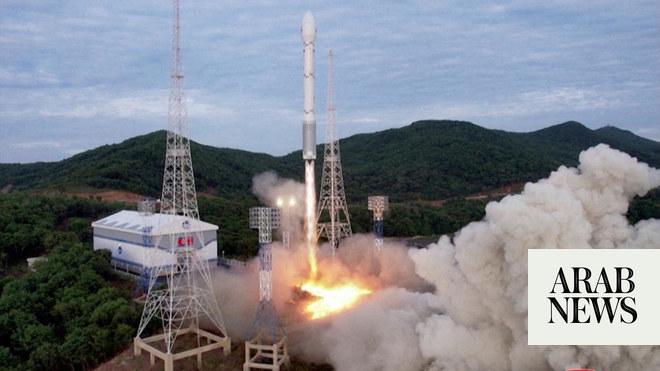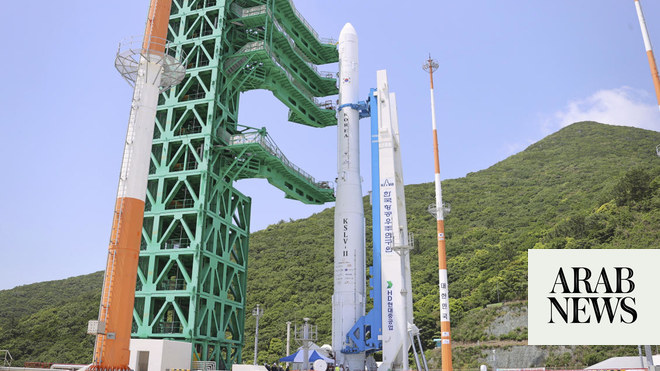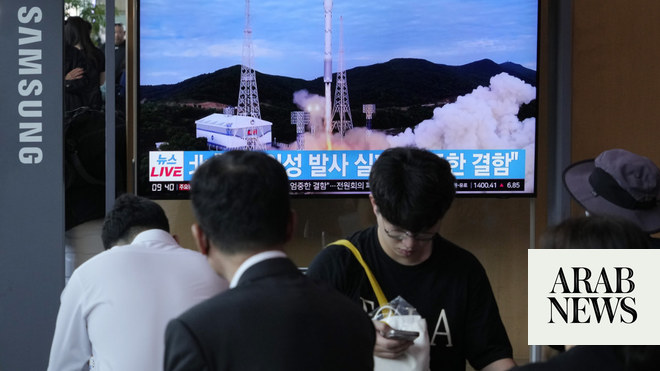
A satellite launch prepared by North Korea is in fact a cover for weapons tests, observers said on Tuesday.
"Through various channels, weve recently learned that the North has completed a new satellite and named it Kwangmyongsong-5", the Joongang Ilbo Seoul daily reported, quoting a South Korean government source.
"Their plan is to put a satellite equipped with cameras and telecommunication devices into orbit", he said.
Pyongyang launched their Kwangmyongsong-4 satellite in February 2016, which most in the international community viewed as a disguised ballistic missile test.
A spokesman for the South Korean military joint chiefs of staff said there was "nothing out of ordinary at this moment" but added that Seoul was watching out for any provocative acts "including the test of a long-range missile disguised as a satellite launch".
The report came as the Norths ruling party newspaper Rodong Sinmun reasserted the regimes right to launch satellites and develop its space technology.
In a commentary published on Monday and titled "peaceful space programs are sovereign countries legitimate rights", the daily said Pyongyangs satellite launches "absolutely correspond" with international laws concerning space development.
At a UN General Assembly committee meeting in October, North Koreas deputy UN ambassador Kim In-Ryong said his country has a 2016-2020 plan to develop "practical satellites that can contribute to the economic development and improvement of the people’s living".
He stressed North Koreas right to produce and launch satellites "will not be changed just because the US denies it".
North Korea is believed to have successfully put a satellite into orbit in December 2012 after years of failures dating back to 1998 when it launched a pilot satellite and named it Kwangmyongsong-1.
Earlier this month, the Russian newspaper Rossiyskaia Gazeta quoted a Russian military expert, Vladimir Khrustalev, as saying that North Korea was expected to launch two satellites -- an Earth exploration satellite and a communications satellite -- in the near future.
Pyongyang is under multiple UN sanctions over its nuclear and missile tests and is prohibited from carrying out any launch using ballistic missile technology including satellites.
Chinese sanctions against North Korea meanwhile have started to have an impact. Beijing exported no oil products to the North in November, Chinese customs data showed, apparently going above and beyond sanctions imposed earlier this year by the UN in a bid to limit petroleum shipments to the isolated country.
Last week, the UN Security Council imposed new caps on trade with North Korea, including limiting oil product shipments to just 500,000 barrels a year.
Beijing also imported no iron ore, coal or lead from North Korea in November, the second full month of the latest trade sanctions imposed by UN.
China, the main source of North Korea’s fuel, did not export any gasoline, jet fuel, diesel or fuel oil to its isolated neighbor last month, data from the General Administration of Customs showed on Tuesday.
November was the second straight month China exported no diesel or gasoline to North Korea. The last time China’s jet fuel shipments to Pyongyang were at zero was in February 2015.
Since June, state-run China National Petroleum Corp (CNPC) has suspended sales of gasoline and diesel to North Korea, concerned that it would not get paid for its goods, Reuters previously reported.
Beijing’s move to turn off the taps completely is rare.
In March 2003, China suspended oil supplies to North Korea for three days after Pyongyang fired a missile into waters between the Korean Peninsula and Japan.
It is unknown if China still sells crude oil to Pyongyang. Beijing has not disclosed its crude exports to North Korea for several years.
Industry sources say China still supplies about 520,000 tons, or 3.8 million barrels, of crude a year to North Korea via an aging pipeline. That is a little more than 10,000 barrels a day, and worth about $200 million a year at current prices.
North Korea also sources some of its oil from Russia.
Chinese exports of corn to North Korean in November also slumped, down 82 percent from a year earlier to 100 tonnes, the lowest since January. Exports of rice plunged 64 percent to 672 tonnes, the lowest since March.
Trade between North Korea and China has slowed through the year, particularly after China banned coal purchases in February. In November, China’s trade with North Korea totaled $388 million, one of the lowest monthly volumes this year.
Chinese exports of liquefied petroleum gas to North Korea, used for cooking, rose 58 percent in November from a year earlier to 99 tons. Exports of ethanol, which can be turned into a biofuel, gained 82 percent to 3,428 cubic meters.











